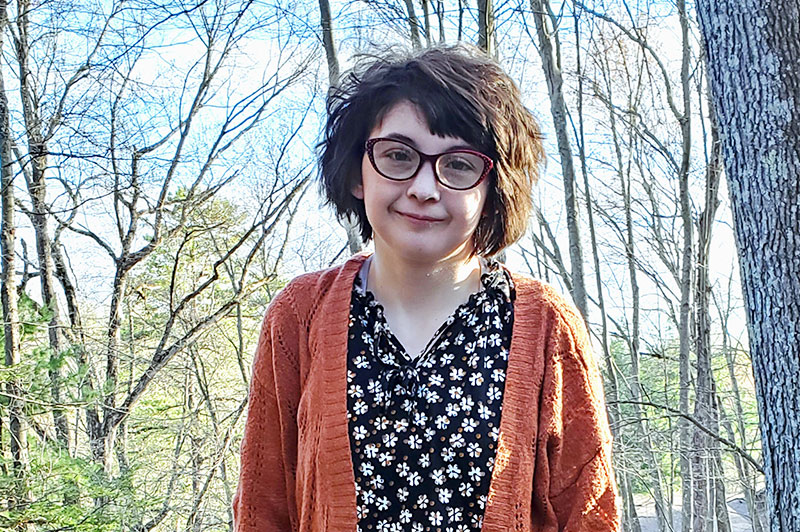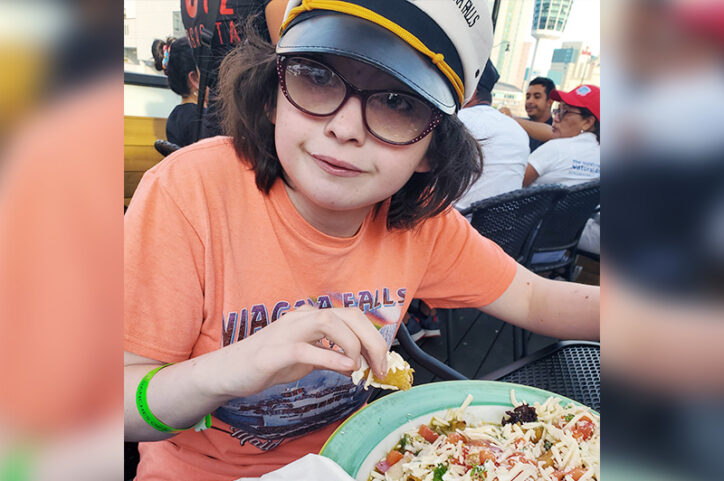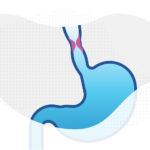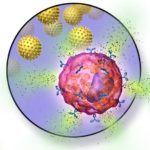Don’t forget the cheese, please! Rachel’s EoE journey

Like many teens, Rachel loves cheese and other dairy foods. “Cheese sticks, yogurt, and especially pizza,” Chellie, her mom, shares. Rachel agrees: She would eat cheese every day if she could. Up until this past spring, Rachel, who also has autism spectrum disorder, was unable to enjoy her favorite foods due to incredible pain in her throat and stomach — pain that she’d had since she was a toddler.
Rachel had already received a diagnosis of gastroesophageal reflux disease (GERD) from her hometown doctor in Connecticut when she was around 3 years old. GERD occurs when gastric fluid travels from the stomach and into the esophagus. However, this diagnosis didn’t explain Rachel’s intense pain and discomfort after eating.
When their local doctors struggled to find answers, Chellie and Rachel were referred to the Division of Gastroenterology, Hepatology, and Nutrition at Boston Children’s Hospital. After the first few visits, Rachel was diagnosed with eosinophilic esophagitis (EoE) in 2009, and quickly transferred to the Eosinophilic Gastrointestinal Disease Program to receive specialty care. “It was amazing getting answers so quickly, but there was still a long road ahead of us,” shares Chellie.
A new diagnosis brings new answers
EoE is an allergic condition that causes inflammation in the esophagus (the tube that connects the mouth to the stomach), typically by one or more food triggers. This inflammation can cause uncomfortable symptoms like swallowing problems, vomiting, heartburn, belly pain, and poor appetite. For Rachel, her trigger was dairy. “It was really devastating to learn that her favorite foods were causing her pain, and that she might never be able to have them again,” remembers Chellie.
Rachel was first put on a round of medications — proton pump inhibitors (PPIs) — to help treat her symptoms, along with the removal of dairy from her diet. This meant no pizza at school, no ice cream socials, and no cheese stick snacks. For about 10 years, Rachel and her family avoided dairy and kept her on her PPI medication to help keep symptoms away. “It was really hard to not allow her to have her favorite foods, especially since they brought her so much joy,” shares Chellie.
The medicine that changed it all
This past spring, Rachel and Chellie met with Dr. Erin Syverson, associate director of the Eosinophilic Gastrointestinal Disease Program, for a follow-up appointment — and a glimmer of hope appeared.
Dr. Syverson first met Rachel in 2021, and they saw each other every six to 12 months for follow-up appointments. At an appointment this past spring, Dr. Syverson suggested that Rachel begin taking a medication called dupilumab, a medication approved by the FDA for treatment of EoE in patients 12 and older. This medication targets the underlying source of inflammation that causes EoE — meaning Rachel would be able to re-introduce her favorite foods without worrying about pain. “Rachel was so giddy at the idea of eating cheese and ice cream that she started crying with excitement — it was really sweet,” shares Dr. Syverson. The first month after Rachel started dupilumab, she was able to get back to enjoying yogurt and cheese after not having them in over 10 years.

The dairy queen is back
Since April 2023, Rachel has been back on a normal diet and off PPIs — and her quality of life has improved. While Rachel will still need follow-up visits to check her progress, the signs of successful treatment are obvious.
“We never thought that we’d be able to let her eat dairy again, and now we’re having pizza dinners!” laughs Chellie. “I can’t stress enough how thankful we are that Dr. Syverson has been available to us through everything — she answers all of our questions and has given us a level of care that we didn’t think was possible.” As for 17-year-old Rachel, she’s happily munching on pizza slices and building her LEGO sets without thinking about any stomach issues.
To learn more, visit the Eosinophilic Gastrointestinal Disease Program
Related Posts :
-

How transnasal endoscopy got Jamie back on the golf course
Jamie is like most 15-year-olds — he goes to school, hangs out with his friends, and still makes time to get ...
-

Finding a nutrition plan that works for your family
Every day, millions of people follow specialized diets for myriad reasons. These can include religious or ethical beliefs, allergies or ...
-

Predicting feeding difficulties in children with esophageal atresia: A proactive approach
Children with esophageal atresia are at risk for developing anastomotic strictures, or areas of esophageal narrowing, following surgical repair. Clinicians ...
-

Food allergies: Turning tolerance back on
Hans Oettgen, MD, PhD, is Associate Chief of the Division of Allergy and Immunology at Boston Children’s Hospital. He ...





